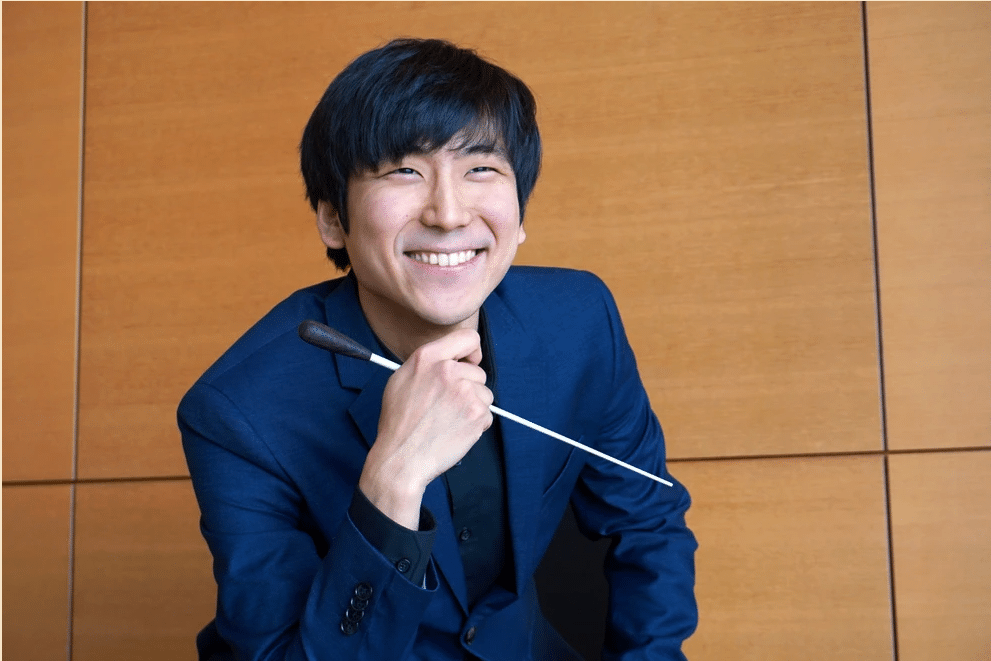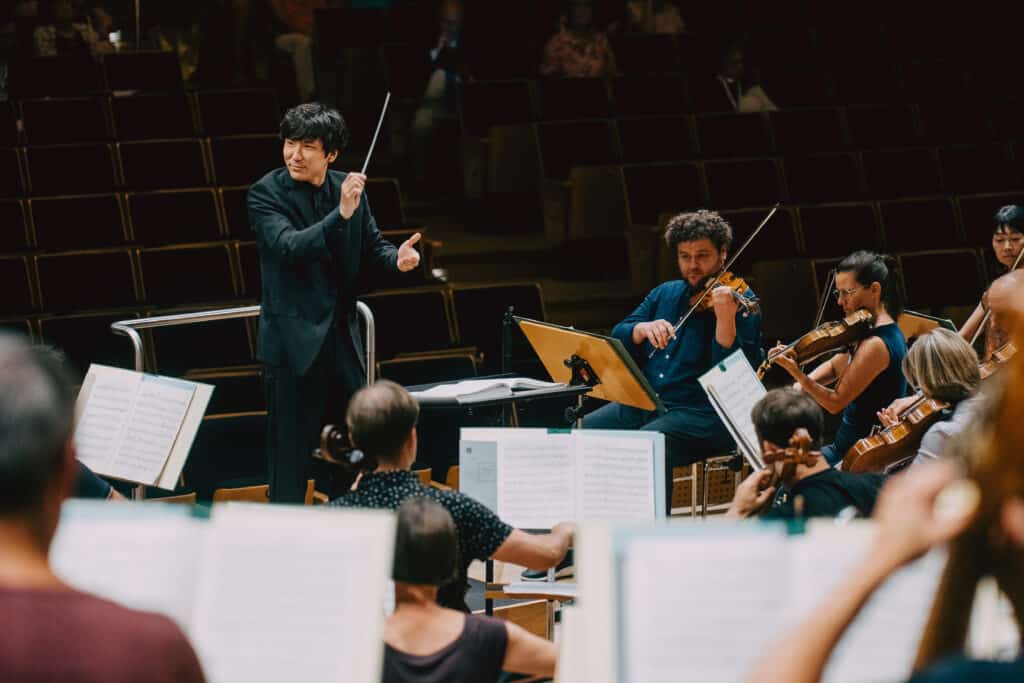“That moment was pivotal for me, proving that the hours spent uncovering the meaning behind sound pays off, creating a universal language.” – Taichi Fukumura ‘10
When the orchestra takes the stage, we see a group of talented musicians with an exact understanding of their score, who are led by the keen musical awareness of their conductor to create beautiful music. What we don’t see, however, is the amount of attention and time it takes to get to the core of each piece’s message. At BYSO, the orchestra isn’t only about playing notes in synchronicity—it’s about working with each other and one’s conductor to uncover and convey emotion.
Taichi Fukumura ’10 remembers his first opera with BYSO, which was also BYSO’s first opera: Mozart’s Così fan tutte. As a young violin player, he was engrossed in the complexity of Mozart’s portrayal of emotion: “In every moment, the music embodied what was happening dramatically and within the characters internally. It was a challenge and a great gift.”
Now, Taichi holds a unique perspective as both a violinist and an accomplished conductor. His interest in conducting started in middle school when he was a member of BYSO’s Junior Repertory Orchestra, and has since grown into a myriad of conducting fellowships, awards, and roles across the world. Currently, Taichi serves as the Assistant Conductor of the Fort Worth Symphony Orchestra (FWSO). In addition to conducting over 110 concerts with the FWSO, he’s taken on the responsibility of redesigning the orchestra’s education and community programs.

This past summer, Taichi was awarded the Second Prize in The Mahler Competition, an internationally renowned competition for groundbreaking conductors. Throughout the competition, he noticed the jury’s emphasis on a shared goal: using music to make the world a better place. With the caring atmosphere curated throughout the rigorous process of the competition, similar to what he remembered from BYSO, risks and mistakes were welcomed for the sake of digging deeper into the music.

Behind the synchronized gestures we see in the thick of a complicated movement, conducting is not about perfection. It’s an opportunity to explore a piece of music and encourage your orchestra to take risks in search of uncovering the feeling beyond the notes. Thinking back to his first opera performances in BYSO, Taichi remembers: “That moment was pivotal for me, proving that the hours spent uncovering the meaning behind sound pays off, creating a universal language.”
Help BYSO lay the groundwork for excellence today!
Are you, or someone you know, a BYSO alum with an interesting story or life update to share? Contact Jeanne Bedard, Development Associate, at jbedard1@bu.edu or (617) 358-6119